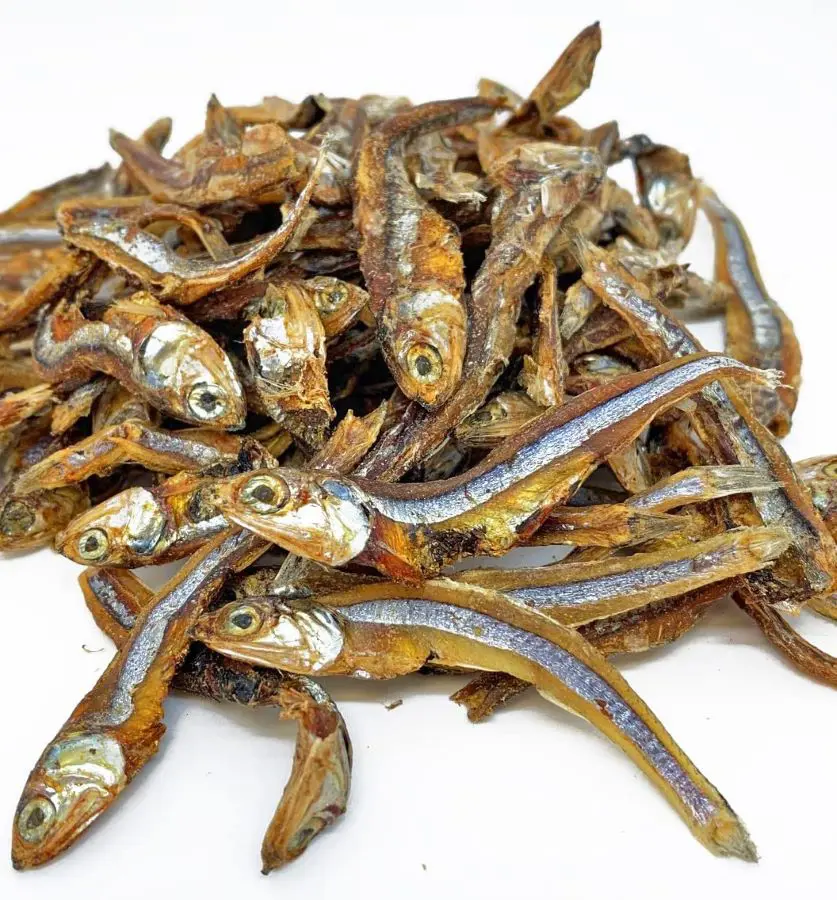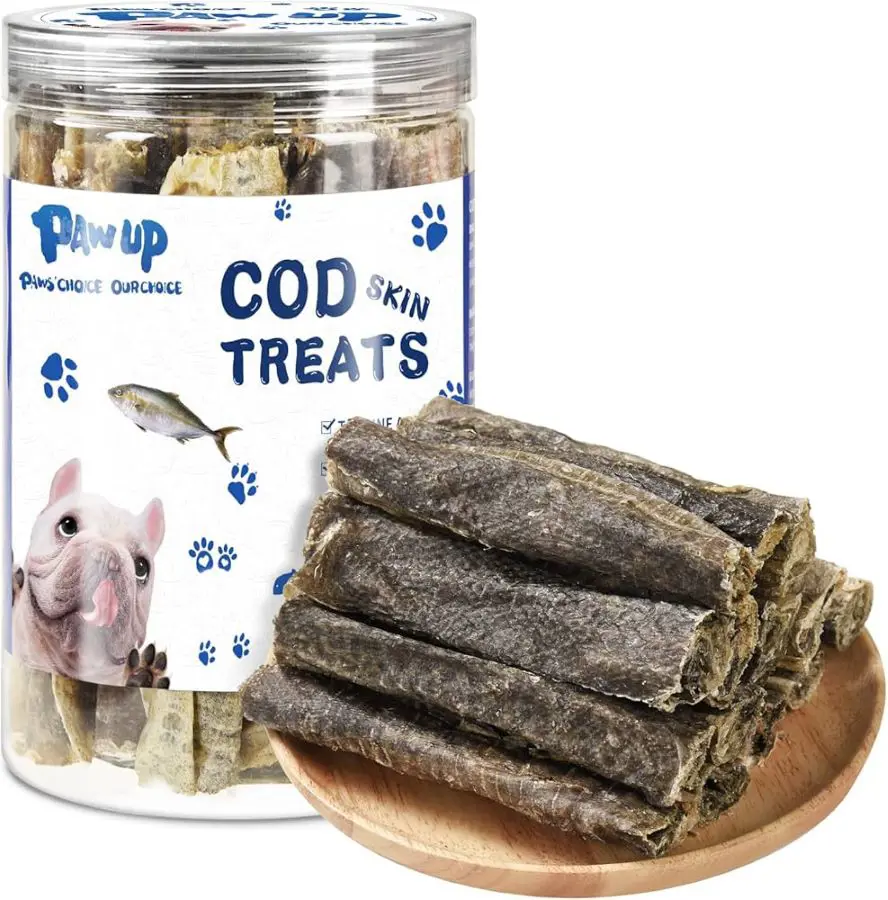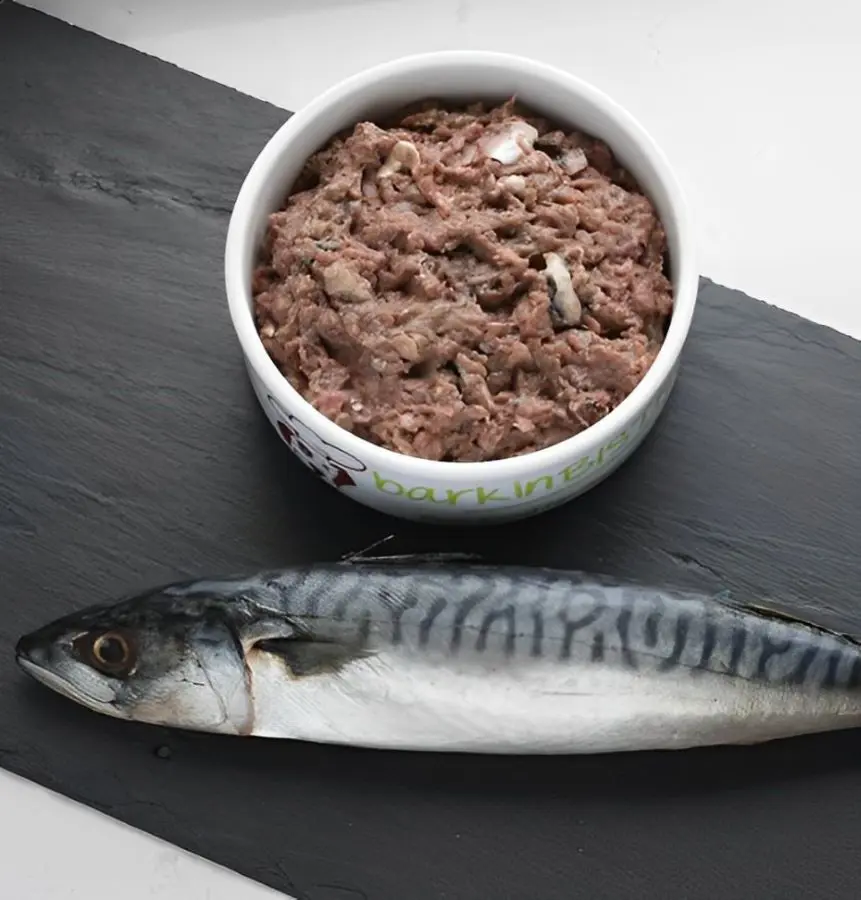10 Fish Options Your Dog Can Eat

As pet owners, we're always on the lookout for nutritious and delicious food options to keep our canine companions happy and healthy. While many dogs thrive on traditional kibble, incorporating fresh, whole-food proteins like fish can provide a wealth of benefits.
From supporting skin and coat health to boosting brain function and reducing inflammation, certain fish varieties offer an impressive nutritional profile that's tailor-made for our four-legged friends.
In this comprehensive guide, we'll explore 10 fish options that are not only safe for dogs to consume, but also packed with the essential nutrients they need to truly thrive.
1. Salmon
Salmon is one of the fish options that dogs can safely eat because it provides numerous health benefits when incorporated into their diet. They are a highly digestible and palatable protein source.
Additionally, salmon is rich in omega-3 fatty acids. It is also a good source of vitamins and minerals like vitamin B12.
Compared to other types of seafood, salmon is lower in mercury, making it a safer option for dogs. However, it's important to only feed dogs cooked, boneless salmon, as raw or undercooked salmon can contain parasites that can make dogs sick with salmon poisoning disease.
Keep in mind that portion size is critical. So, salmon should be fed as a supplement, not a replacement, in a dog's balanced diet.
Benefits
- Because of high-quality protein sources, it provides essential amino acids that support healthy muscle growth and repair in dogs.
- As we discussed, they are high in omega-3 fatty acids, which can help reduce inflammation and support healthy skin and coat for dogs.
- Salmon is low in saturated fat and high in healthy unsaturated fats, making it an excellent protein choice for dogs with heart conditions.
- Likewise, the omega-3 fatty acids in salmon can help lubricate the digestive tract and reduce inflammation, supporting healthy bowel functions in dogs.
- Salmon has less cholesterol and saturated fat compared to other protein sources, making it a good option for dogs trying to lose weight.
2. Tuna
This fish can be a beneficial addition to a dog's diet when fed in moderation, as it provides a rich source of protein, omega-3 fatty acids, and essential vitamins and minerals.
Tuna is also low in saturated fats, which supports a healthy cardiovascular system while providing energy. Additionally, it can be a good option for dogs with sensitive stomachs or picky eaters, as it offers a different protein source than the more commonly found animal proteins in dog food, such as chicken.
However, it's important to note that tuna, being a larger fish, can contain higher levels of mercury, which can be toxic in large quantities.
To reduce this risk, it's best to choose tuna species with lower mercury levels, such as skipjack, and feed it as an occasional treat rather than a regular part of the diet.
Benefits
- Proteins inside this fish provide essential amino acids that support muscle growth and maintenance in dogs.
- Omega-3 fatty acids help reduce inflammation and promote healthy skin and coat in dogs, maintaining healthy vision and eye function. Plus, it helps to lower blood pressure and cholesterol levels, which reduces the risk of heart disease in dogs. And, it also helps support cognitive function and brain health in dogs.
- Tuna is a good source of vitamins and minerals, including vitamin B12, vitamin D, selenium, and phosphorus, which are important for overall canine health.
3. Sardines

Besides omega-3s and protein, sardines provide crucial vitamins and minerals that promote overall health. They are high in vitamin B12, which is vital for nerve function and red blood cell production. Sardines also have vitamin D, calcium, phosphorus, and selenium. Vitamin D.
When giving sardines to your dog, choose those packed in water instead of oil because oil-packed sardines can be high in fat and calories. Remember, you can feed sardines in moderation as a treat or supplement, not as a main part of their diet.
It's best to consult with your vet to determine the right amount based on your dog's size and nutritional needs.
Benefits
- Sardines are an excellent source of omega-3 fatty acids, which can help reduce inflammation, promote healthy skin and coat, and support brain function in dogs.
- They are a complete protein source, providing all the essential amino acids dogs need for muscle growth and repair.
- It contains coenzyme Q10, an antioxidant that can help support heart function, especially in dogs with existing heart conditions.
- The nutrients in sardines, such as vitamins B12 and D, can help strengthen the immune system and protect dogs from infections and illnesses.
- The omega-3 fatty acid DHA found in sardines is vital for cognitive function and eye health, especially in puppies and senior dogs.
- The anti-inflammatory properties of omega-3s can help reduce joint inflammation and pain, improving mobility in large breeds and older dogs.
4. Whitefish
Firstly, whitefish is a highly digestible protein source. Unlike longer-lived fish species that can accumulate higher levels of mercury, whitefish is naturally low in toxins, ensuring it is a safe and healthy choice for your canine companion.
Moreover, they are packed with beneficial nutrients, for example, omega-3 fatty acids, vitamin B12, and more.
Importantly, they are naturally low in sodium, which makes them a suitable option for dogs who require a restricted-sodium diet.
Thus, adding whitefish to your dog's diet can make mealtime more exciting and enticing, as it offers a novel protein source compared to more common options like chicken or beef.
Benefits
- The omega-3 in this fish helps reduce inflammation, promote healthy skin and coat, and support brain function in dogs. Likewise, it helps lower blood pressure and cholesterol levels.
- Whitefish is a great source of lean, easily digestible protein, making it an ideal choice for dogs with sensitive stomachs or protein allergies.
- They are packed with vitamins and minerals like vitamin A, zinc, and iron that can help strengthen the immune system and protect dogs from infections and illnesses.
- The vitamin A in whitefish is beneficial for maintaining good vision, especially in low light conditions, and can help slow down age-related sight loss in older dogs.
- Whitefish is highly digestible and gentle on the stomach, making it a great choice for dogs with sensitive tummies or digestive issues.
- They can be a nutritious addition to a dog's diet at any age, from puppies to seniors, providing essential nutrients for growth, maintenance, and healthy aging.
5. Trout
Trout is an excellent choice for dogs due to its impressive nutritional profile and numerous health benefits. This freshwater fish is packed with high-quality protein, providing the essential amino acids needed to maintain strong muscles and support overall bodily functions.
In addition to its benefits, trout is a rich source of omega-3 fatty acids. They are low in mercury and other contaminants, making them a safe option for dogs.
When cooked thoroughly and served in moderation as part of a balanced diet, trout can be a delicious and wholesome addition to your dog's meals, offering a novel protein source that can help alleviate food allergies or intolerances while providing a satisfying crunch and burst of flavor with every bite.
Benefits
- The omega-3 in trout helps reduce inflammation, promote healthy skin and coat, and support brain function in dogs. Similarly, it helps to lower blood pressure and cholesterol levels.
- Trout is a protein-rich food, providing 20.5 grams of protein per 100-gram serving, making it beneficial for building and maintaining muscle mass in dogs.
- Trout is considered a low-mercury fish option, making it a safer choice compared to some other types of fish that can accumulate higher levels of this heavy metal.
- The anti-inflammatory properties of omega-3s in trout can help reduce joint inflammation and pain, improving mobility in large breeds and older dogs.
- It can be a novel protein source for dogs with food allergies or intolerances.
6. Anchovies

Anchovies are small, low on the food chain, and have a short lifespan, making them less likely to accumulate heavy metals, toxins, or pollutants than larger, predatory fish.
Similarly, dogs love anchovies, which makes them an appealing and palatable addition to their diet. The small size of anchovies is perfect for feeding whole dogs without worrying about bones, which can be a choking hazard.
Benefits
- Rich in omega-3 fatty acids which can help reduce inflammation, promote healthy skin, and coat and support brain function.
- Provide essential nutrients like proteins, fats, calcium, selenium, and various B vitamins.
- Supports heart health by helping to stabilize blood pressure and blood cholesterol levels.
- Boosts cognitive performance and improves behavior.
- Alleviates the effects of allergies and an overactive immune system.
- Moisturizes skin to relieve dryness, itching, and flakiness.
- Supports healthy development of the retina and protects against various forms of cardiovascular disease.
7. Mackerel
Mackerel is an excellent choice to feed dogs due to its high nutritional value and health benefits, for instance, omega-3 and omega-6 fatty acids, high-quality protein, and vitamins B12 and D.
When feeding mackerel to dogs, it's important to choose plain, cooked fillets without any bones, as bones can be a choking hazard and cause internal damage. Nonetheless, canned mackerel should be avoided due to potential preservatives and high sodium content.
It is necessary to remember that moderation is key, as too much mackerel can lead to obesity or digestive issues. Mackerel should make up no more than 10% of a dog's daily caloric intake and be served as an occasional treat.
Benefits
- It helps to reduce inflammation, promote healthy skin and coat, lower blood pressure and cholesterol levels, and support brain functions because of its richness in omega-3 fatty acids.
- Mackerel is a protein-rich food, providing essential amino acids that support muscle growth and maintenance.
- They are packed with vitamins and minerals like vitamin B12, vitamin D, and selenium that can help strengthen the immune system.
- Furthermore, vitamin A and omega-3s in mackerel are beneficial for maintaining good vision, especially in low-light conditions.
- This fish can be a novel protein source for dogs with food allergies or intolerances.
8. Tilapia
Apart from the omega-3 fatty acids, it's a lean source of protein that's low in mercury, making it a good choice for muscle growth and overall health without the risk of mercury poisoning. Plus, tilapia provides important vitamins and minerals like vitamin B12, selenium, and phosphorus, all of which contribute to your dog's overall health.
When feeding tilapia to your dog, make sure it is thoroughly cooked and deboned, with no added seasonings or oils. Raw or undercooked tilapia can contain harmful bacteria or parasites. It's best to serve tilapia as an occasional treat or supplement, not as a main part of their diet.
Importantly, always check with your vet to determine the right amount of tilapia for your dog.
Benefits
- Tilapia is a high-quality protein source, providing essential amino acids that support muscle growth and repair in dogs.
- They are relatively low in saturated fat, making it a heart-healthy protein option for dogs.
- It contains omega-3 fatty acids, which can help reduce inflammation, promote healthy skin and coat, and support brain function in dogs.
- Plus, the nutrients in tilapia, such as vitamin B12 and selenium, can help strengthen the immune system and protect dogs from infections and illnesses.
- The protein in tilapia can help support muscle growth and maintenance, especially in active or growing dogs.
- Tilapia is a lean, easily digestible protein source that can be a good option for dogs with sensitive stomachs.
- It has a milf flavor that many dogs find appealing.
9. Cod

Besides omega-3 fatty acids, cod is a lean, protein-rich fish that is low in fat and calories, which makes it a healthy addition to a dog's diet. They are also relatively low in mercury compared to larger, longer-lived fish species.
When cooked thoroughly and served without bones, cod can be an excellent protein source that is easy for dogs to digest. Veterinarians often recommend cod as an alternative protein for dogs with food allergies or sensitivities.
However, it's important to only feed dogs plain, cooked cod without any added seasonings, oils, or sauces, as these can be harmful to dogs. Likewise, portion size is also necessary, as cod should be fed as a supplement, not a replacement, for a balanced food diet.
Benefits
- Cod is a high-quality protein that provides the essential amino acids dogs need to build and maintain strong muscles.
- Richness of omega-3s. Thus it helps to reduce inflammation, promote healthy skin and coat, support function, lower blood pressure, and many more.
- Cod is an easily digestible protein that can be a good option for dogs with sensitive stomachs.
10. Pollock
Like other fish discussed above, Pllock is a lean, white fish that is high in protein, low in mercury, rich in omega-3 fatty acids, and a good source of vitamin B12. These attributes make it a beneficial addition to your dog's diet.
Likewise, it can be easily incorporated into a dog's diet, either as a topper for their regular food or as a treat. When feeding this fish to the dogs, it is important to choose plain, cooked fillets without any bones, as bones can be a choking hazard.
Benefits
- Pollock is a good source of omega-3 fatty acids like EPA and DHA, which can help reduce inflammation, promote healthy skin and coat, and support brain function in dogs.
- It is a lean, protein-rich fish that provides essential amino acids to support muscle growth and maintenance.
- The omega-3s in pollock can help lower blood pressure and cholesterol levels, reducing the risk of heart disease in dogs.
- They are a good source of vitamins B12 and D, as well as minerals like selenium and phosphorus, which are important for overall canine health.
- The nutrients in pollock, such as vitamin B12 and selenium, can help strengthen the immune system and protect dogs from infections and illnesses.
Preparing Fish For Your Dog

When preparing fish for your dog, it's important to remove any bones, skin, and scales, as these can be choking hazards or cause digestive issues. It's also best to avoid feeding your dog raw fish due to the risk of foodborne illnesses and parasites. Always cook the fish thoroughly before serving it to your dog.
Portion Sizes
When adding fish to your dog's diet, it's important to do so in moderation and to adjust their regular food portions accordingly to avoid weight gain. As a general guideline, fish should make up no more than 10-20% of your dog's total diet.
Consult with your veterinarian or a canine nutritionist to determine the appropriate portion size for your dog based on their age, size, and activity level.
Top Lists









